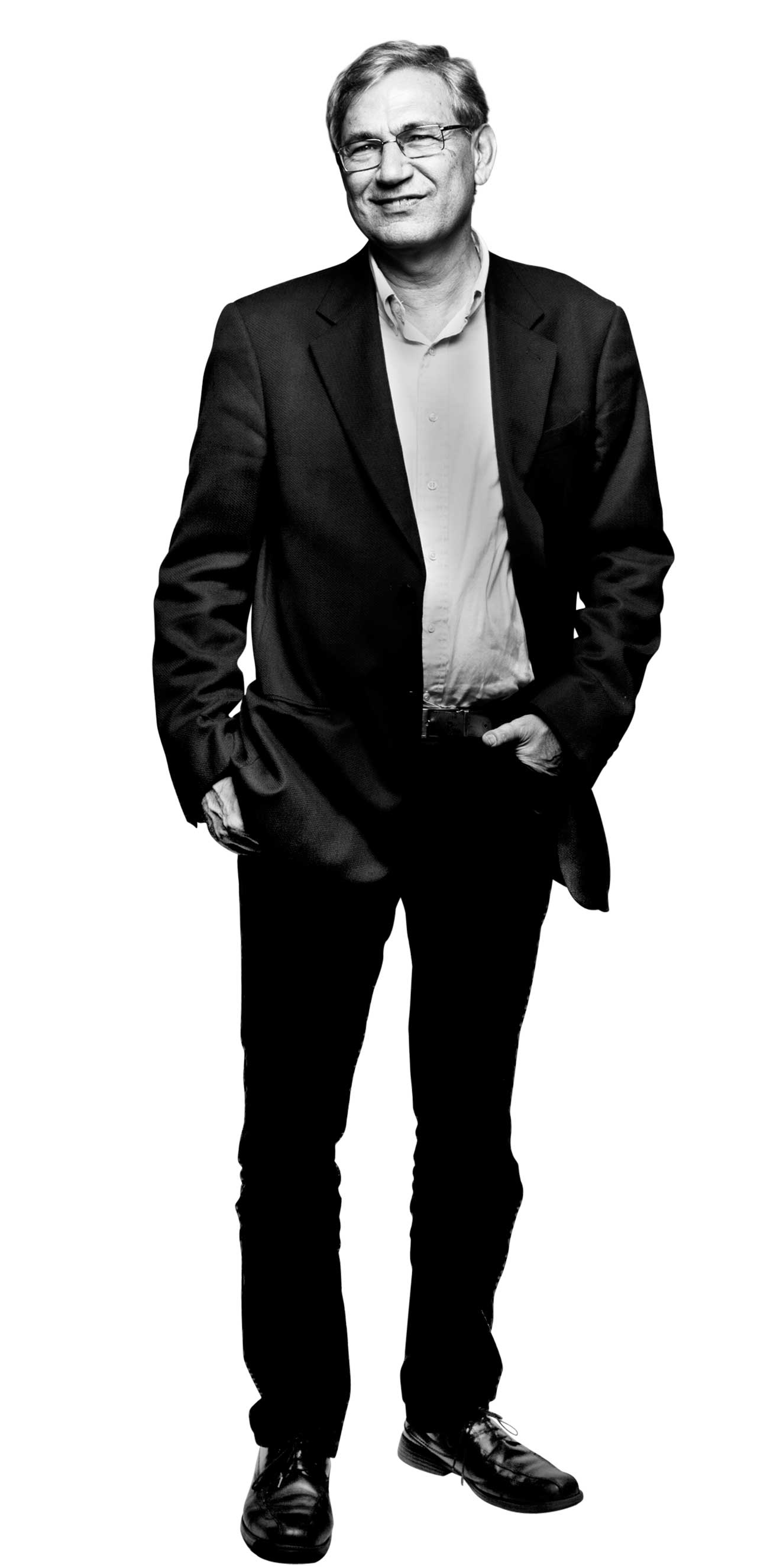
Your new novel, A Strangeness in My Mind, follows the life of a working-class Istanbul man from the 1960s through the present day.
I started it as a short novel about a boza vendor. It didn’t start as a big 600-page epic about street life in Istanbul. It evolved because of the weight of the material. The challenge in this book is to write about a lower-class street vendor as you would about the Karamazov brothers or Hamlet, and expound on his full humanity.
Your main character Mevlut sells boza. What does that drink mean to Turkish people?
Boza was popular in Ottoman times because it’s a slightly alcoholic liquor–so that you will feel tipsy, but you will never think you have done anything against Islam. It was associated with a romanticizing of the Ottoman past, of good days when we had a long tradition, an empire and continuity.
Do you ever drink it yourself?
I drink it because I wrote the novel. But it’s not a very tasty thing, I must confess.
We see Istanbul change and grow over the decades of the novel. Has something been lost?
I cannot just be a flat, nostalgic person crying that the streets of my childhood have been destroyed. I want to identify with the newcomers of Istanbul. But when we live in a city, we fall in love. We get angry. We have a longing for something. We want these signs and symbols and architectural oddities–the continuity of the city–to preserve our memories.
You won the Nobel for literature in 2006. What’s it like to get the call?
For me, it was no surprise. The night before the prize, I had dinner with a Turkish friend who said, “Tomorrow they’re going to vote for …” When I got a phone call at 7 a.m., I knew what that was about, because no one calls me at 7 a.m.
What’s your opinion of Turkey’s President Recep Tayyip Erdogan?
He is getting more authoritarian and not respecting democracy. Today we have an electoral democracy in Turkey but not a full democracy, in terms of free speech. Free speech is in terrible shape.
Is there a pushback against what Erdogan is trying to do?
I’m happy to say there is, that Erdogan is losing the votes even of his conservatives because they don’t see him as a real conservative. It’s good that Turkish voters are addressing an authoritarian President who doesn’t care about full democracy.
How has the refugee crisis affected Turkey?
I live close to Taksim Square, and every day you see Syrian refugees begging. Turkey has taken 2 million refugees. I’m happy that Germany in one year will take 800,000 refugees and lend them papers, security and a future they don’t think they will get in Turkey.
In the past you campaigned for Turkey to join the E.U., but does Turkey still have a place in Europe?
[E.U. membership] didn’t work out. Turkey’s nationalists and secularist army didn’t want it. And European conservatives didn’t want it. Now Europe is busy with its own problems. But the fact they are taking 800,000 Muslims is a good sign that Europe is also learning multiculturalism.
Turkey suffered a horrific terrorist attack on Oct. 10. How will the country respond?
Maybe I’m being too optimistic, but it really brought Turkey together. I hope that the desire to have a stable, peaceful democracy–and anger toward Erdogan and whoever did this–will pave the way to peace and democracy through all the elections.
–BRYAN WALSH
More Must-Reads From TIME
- The 100 Most Influential People of 2024
- The Revolution of Yulia Navalnaya
- 6 Compliments That Land Every Time
- What's the Deal With the Bitcoin Halving?
- If You're Dating Right Now , You're Brave: Column
- The AI That Could Heal a Divided Internet
- Fallout Is a Brilliant Model for the Future of Video Game Adaptations
- Want Weekly Recs on What to Watch, Read, and More? Sign Up for Worth Your Time
Contact us at letters@time.com